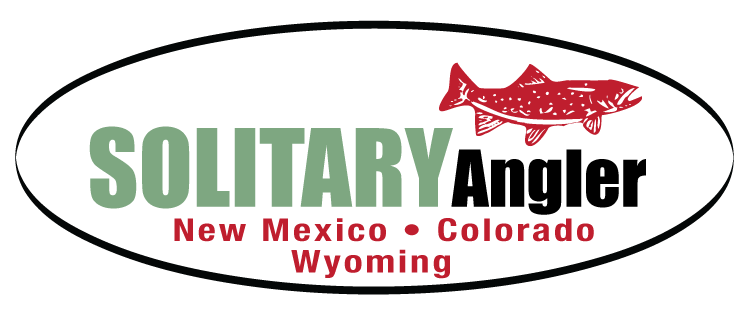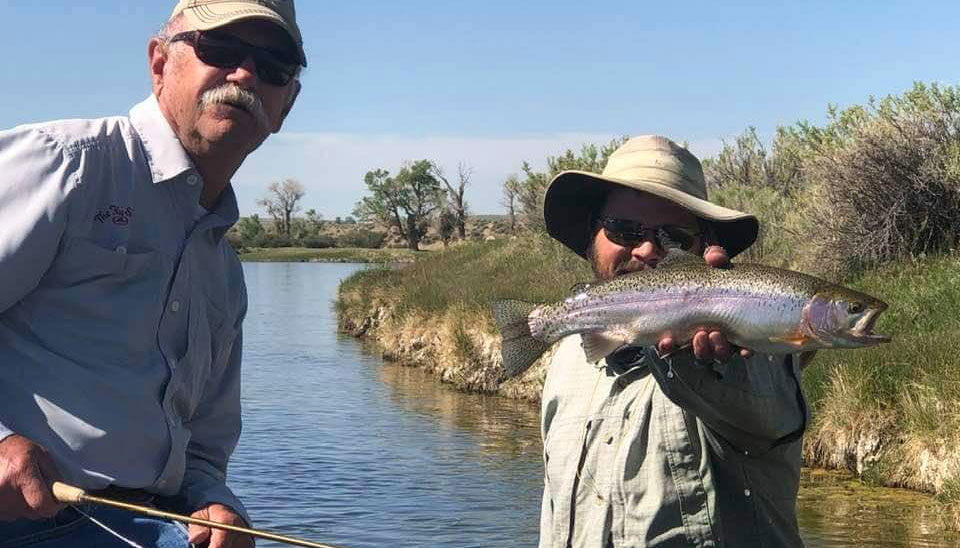What is it like to be a fly fishing guide?
I hear it all the time. “Wow you are living the dream dude. You get paid to take people fishing! You must be the luckiest guy on earth.”
Well… yes I am. But not because I am a fly fishing guide. Besides the fact I have amazing children and am married to my best friend, I am a proud member of the Green River High School faculty. Being a teacher is the best job in the world, so guiding fly anglers is a seasonal/weekend job for me. Don’t get me wrong, I absolutely love my summer gig. I get to meet interesting new people every day, float down a river I love, share my knowledge and passion of the sport with others, and see beautiful stuff like otters and sun rises and crap. But there are down sides to it as well. It’s work.
My typical day starts at 4:30am. After a bucket of coffee, I look at the weather report so I can prep for the day. I want to know what the rivers flow rate is, where the wind will be coming from, and what the air temperature will be so I can assess the best stretch of river to float given the conditions. All that stuff affects what bugs will hatch and where we will be likely to find active fish. I pack the cooler with ice and drinks, our shore lunch (I like to grill elk burgers or brats most days), and double check I have not forgotten anything important (i.e. propane for the grill…raw elk burgers for lunch would suck). Then I gas up and hit the road while pounding a minimart breakfast sandwich and more coffee. It’s a 30 to 55 minute drive to most locations I float.
I meet my clients for the day at a predetermined spot. Most folks come from a long way away, at considerable expense, and have booked the trip far in advance so expectations are high. They have been day dreaming for months about peacefully floating a scenic western river and hooking giant trout, while an eagle soars overhead and Sasquatch peers at them from behind a cottonwood tree. So I feel a little pressure. I am responsible for making this day as fun and rewarding as possible, and there is much that is not in my control. The reality is guides end up fishing in every imaginable condition. Someone who has come all the way from say Texas, cannot reschedule the trip last minute. “Neither snow nor rain nor heat nor gloom of night stays these couriers from the swift completion of their appointed rounds” sort of works for more than the US Postal Service.
After some introductions and general banter we head to the water, launch the boat, and get to fishing. We have many miles of river to drift, fish and explore.
Pretty quickly most guides can size up their anglers skill level and spot where they can be of the most help. Good guides try hard to be enthusiastic teachers as well as good company on the water. They really want you to catch fish, as it’s what your there to do (obviously) and it makes the day far more interesting. So they must be willing to teach all the major and minor aspects of the sport. Fly fishing is both art and science, very challenging, and it takes years of practice to become accomplished at it. There is real reward in helping an angler reach a higher level of mastery.
Contrary to popular belief, guides do not actually fish during their work day. I rig rods, point out moose, untangle lines, tell funny stories, maneuver the boat, coach casting and presentation skills, land fish, teach entomology, tie knots and make lunch… sometimes all at the same time. Days are long, I am often on the water rowing, netting fish, wading in heavy current and such for 10 hours. As the sun dips low and we reach the pull out, both guide and clients are usually pretty bushed. By the time I have loaded the boat, said my goodbyes, and driven home it’s usually about 8pm before I walk through the front door. I strip off waders, pack lunch for the next day, clean and hose out the boat, grab a quick dinner, tie a few flies (they get used up and have to regularly be replenished), and crash for the night. 4am will come early the next day. It is not uncommon for busy guides to follow this routine10 or more days in a row before getting a day off. Then you are into another long stretch. Burn out is a real danger.
So why do it? I can’t speak for anyone but myself, but simply because I love it. Like my classroom, it is extremely rewarding to see joy on a person’s face when they learn something new. I love watching clients relax into the natural rhythm of the river as they untie all the knots modern life twists into us. I love being part of a new angler’s first trout, and a seasoned angler’s largest trout. And to be honest, I love the challenge of it. The physical challenges help me stay in shape, the mental challenges help keep me sharp, and the emotional challenges (I have to figure out how to get along with anyone. It’s a small boat) help me learn to be a better student of people.
As author and rabid fisherman, Robert Traver, wrote in 1964:
I fish because I love to;
Because I love the environs where trout are found, which are invariably beautiful, and hate the environs where crowds of people are found, which are invariably ugly;
Because of all the television commercials, cocktail parties, and assorted social posturing I thus escape;
Because, in a world where most men seem to spend their lives doing things they hate, my fishing is at once an endless source of delight and an act of small rebellion;
Because trout do not lie or cheat and cannot be bought or bribed or impressed by power, but respond only to quietude and humility and endless patience;
Because I suspect that men are going along this way for the last time, and I for one don’t want to waste the trip; because mercifully there are no telephones on trout waters;
Because only in the woods can I find solitude without loneliness;
Because bourbon out of an old tin cup always tastes better out there;
Because maybe one day I will catch a mermaid;
And, finally, not because I regard fishing as being so terribly important but because I suspect that so many of the other concerns of men are equally unimportant – and not nearly so much fun.

